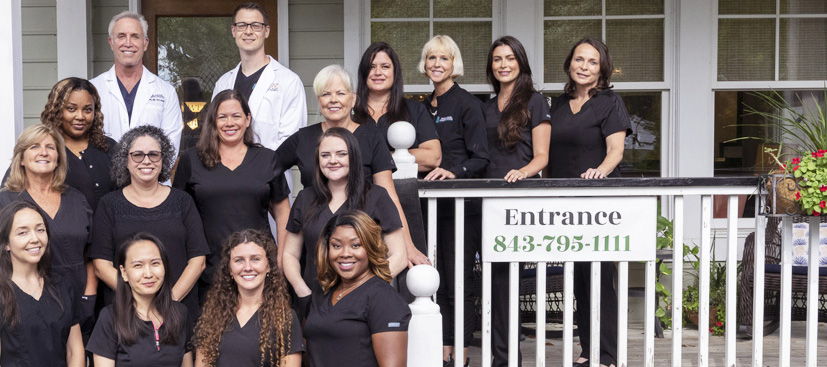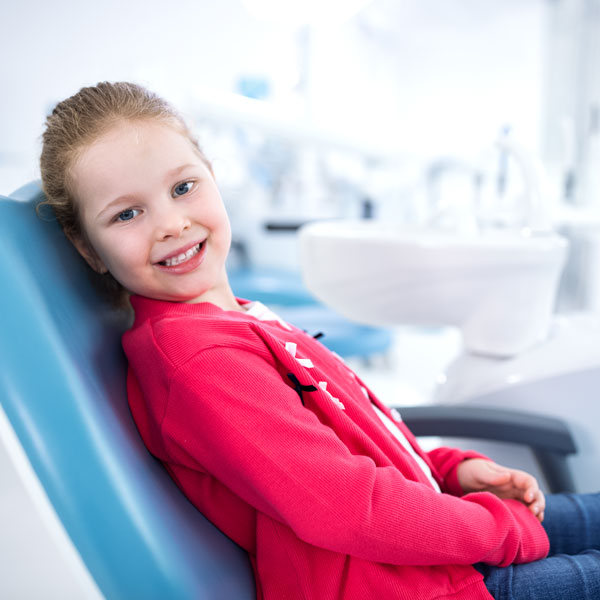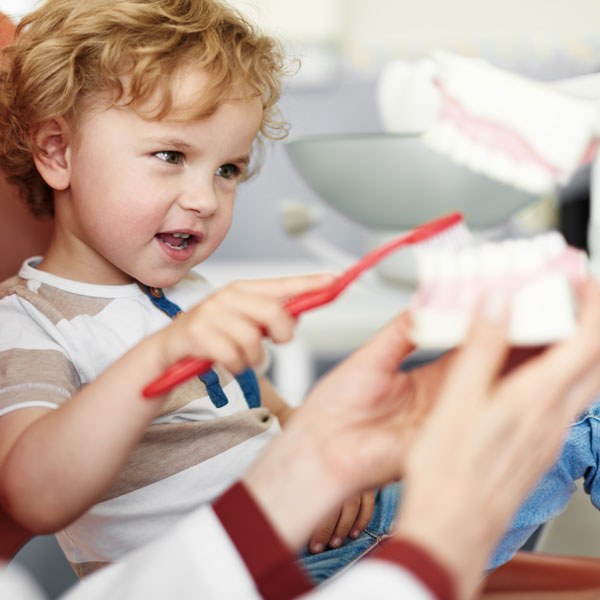Pediatric Dentistry

Your Child’s First Dental Visit
We recommend a child’s first dental visit be scheduled no later than their third birthday. This visit is usually short and involves very little treatment. It’s referred to as a “Happy Visit” on the receipt because the focus is on giving your child a great first impression.
As part of the experience, we might ask the parent to sit in the dental chair and hold the child during the examination. If the child is comfortable in the office, we’ll ask the parent to wait in the reception area during part of the visit, so the dentist and child can begin to form a relationship.

Pediatric Dentistry in James Island
- Take X-rays to check for decay and the progress of the child’s permanent teeth under the gums
- Clean the child’s teeth and apply topical fluoride to help protect the teeth against decay
- Evaluate adverse habits like thumb sucking
- Ensure the child is receiving adequate fluoride at home
- Teach the parent about cleaning their teeth and gums
- Suggest a schedule for regular dental visits

Preparing the Child for the First Visit
Preparing a child for their first dental visit should be handled like any other “first”, like their first haircut or trip to the shoe store. The child’s reaction to his first dental visit may surprise you.
Here are some tips for a great “First Visit”:
- Bring the child in for a “preview” of the office
- Read books with them about going to the dentist
- Talk with them about what the dentist will be doing while they’re at the office
- Speak positively about any personal dental experience
Baby Teeth
The first baby teeth are the two bottom front teeth, which most parents will notice when the baby is about 6-8 months old, followed by the four upper front teeth. The remaining baby teeth will appear periodically, usually in pairs, until the child is about 2 1/2 years old.
By that age, the child should have all 20 teeth. Permanent teeth start to appear between the ages of 5-6 years old. Some replace baby teeth and others don’t. All children are different; some teeth may be a few months early or come in later.
Baby teeth not only hold space for permanent teeth, but they’re important for chewing, biting, speech, and appearance. It’s important to maintain a healthy diet and daily hygiene to keep the teeth healthy.

Children’s Nutrition and Healthier Teeth
Establishing good eating habits in early childhood can go a long way to ensuring a lifetime of good oral health. Children should eat foods rich in calcium and other kinds of minerals, as well as a healthy balance of the essential food groups like vegetables, fruits, dairy products, poultry, and meat.
Fluoride supplements may be helpful if the community does not have fluoridated water; please consult with our office first. Be aware that sugars are even found in some kinds of condiments, as well as fruits and even milk.
Allowing children to eat excessive amounts of junk food (starches and sugars)—including potato chips, cookies, crackers, soda, artificial fruit roll-ups, and granola bars—only places them at risk for serious health problems, including obesity, osteoporosis, and diabetes. The carbonation found in soda, for example, can actually erode tooth enamel. Encourage children to use a straw when drinking soda to keep at least some of the carbonated beverage away from their teeth.
